
Nihil Obstat:
Rev. Michael Heintz
Censor Librorum
Imprimatur:
 John M. DArcy
John M. DArcy
Bishop of Fort Wayne-South Bend
December 20, 2007
The Nihil Obstat and Imprimatur are declarations that a work is free from doctrinal or moral error. It is not implied that those who have granted the Nihil Obstat and Imprimatur agree with the contents, opinions, or statements expressed.
The Scripture citations used in this work are taken from the Second Catholic Edition of the Revised Standard Version of the Bible (RSV), copyright 1965, 1966, and 2006 by the Division of Christian Education of the National Council of the Churches of Christ in the United States of America; used by permission; all rights reserved. English translation of the Catechism of the Catholic Church for the United States of America copyright 1994, United States Catholic Conference, Inc. Libreria Editrice Vaticana. English translation of the Catechism of the Catholic Church: Modifications from the Editio Typica copyright 1997, United States Catholic Conference, Inc. Libreria Editrice Vaticana. English translations of papal or other Vatican documents are from the Vatican website, www.vatican.va. Prayer from the feast of St. Joseph (March 19) is from The Roman Missal, copyright 1973 by the International Committee on English in the Liturgy, Inc. (ICEL).
Every reasonable effort has been made to determine copyright holders of excerpted materials and to secure permissions as needed. If any copyrighted materials have been inadvertently used in this work without proper credit being given in one form or another, please notify Our Sunday Visitor in writing so that future printings of this work may be corrected accordingly.
Copyright 2008 by Our Sunday Visitor Publishing Division, Our Sunday Visitor, Inc. Published 2008
13 12 11 10 09 08 1 2 3 4 5 6 7 8 9
All rights reserved. With the exception of short excerpts for critical reviews, no part of this work may be reproduced or transmitted in any form or by any means whatsoever without permission in writing from the publisher. Write:
Our Sunday Visitor Publishing Division
Our Sunday Visitor, Inc.
200 Noll Plaza
Huntington, IN 46750
ISBN: 978-1-59276-285-9 (Inventory No. T374)
LCCN: 2007942825
Cover design: Amanda Miller
Cover art: Shutterstock
Interior design: Sherri L. Hoffman
Interior art: Margaret Bunson
PRINTED IN CHINA
Table of Contents
Acknowledgments
I am most grateful to Jacquelyn Lindsey at Our Sunday Visitor for having faith in me to go forward with this book. Id like to also thank the entire team at Our Sunday Visitor.
As always, I am thankful to my parents and my family: my mother, Alexandra Mary Uzwiak Cooper, and my father, Eugene Joseph Cooper, in loving memory and thanksgiving for bringing me into this world. Also, my thanks to the blessing of my brothers and sisters: Alice Jean, Gene, Gary, Barbara, Tim, Michael, and David. And to my husband, David, for his loving support.

Dedicated with great love
To my five children: Justin, Chaldea, Jessica,
Joseph, and Mary-Catherine.
Introduction
W hat can the saints of yesterday offer us today? Transcending history, they offer us timeless wisdom and inspiration, while bringing us closer to God. Sanctity surpasses time and is forever near us.
The saints exemplary examples of holiness give us unparalleled help and sustain our hope, especially during trying times. Just as our association with fellow Christians helps us come closer to Jesus, so our communion with the saints in heaven helps join us to Jesus, but more perfectly.
The Catechism of the Catholic Church tells us, We can and should ask [the saints] to intercede for us and for the whole world (CCC 2683). Saints are invoked for both the most pressing and the most trivial of needs.
The Church recognizes the saints, who have preceded us into heaven, as holy individuals sharing in the living tradition of prayer. The saints have contemplated God and praised and honored Him by their lives of heroic virtue.
When the Church canonizes the saints, it solemnly proclaims that they lived in fidelity to Gods grace and the Churchs teachings and have practiced heroic virtues. This formal process of canonization was first put into place by Pope Urban VIII in 1634.
Each year, on November 1, we honor all of the saints in heaven, both canonized and uncanonized. Pope John Paul II told us to pray for more saints and that more than reformers the Church has a need for saints, because saints are the authentic and most fruitful reformers.
Saints are people from differing walks of life and eras, races, and temperaments. But they are alike in that they all possessed an absolute faith in God and His promises. They all chose to become holy people, keeping the Ten Commandments, loving God and their neighbor with all their hearts, souls, and minds. They were united in love love for God and mankind. Because they were open to Gods holy will in their lives, God used them as His instruments to further His kingdom.
We can see the wisdom and holiness of the saints through the conduct of their lives. It shines through the ways they have loved and in their faithfulness to their state in life. Many times their lives were given in service to the very least of Gods children or the poorest of the poor.
Ultimately, we should see the saints as models of sanctity for us to imitate, as well as tremendous intercessors, helping us when we invoke them. We should indeed seek out the saints, who will surely help lead us to God, assisting us all along the way.
The saints realized that their work for the Lord would not stop at their death but would continue into eternity. St. Dominic reassured his brothers as he was dying: Do not weep, for I shall be more useful to you after my death, and I shall help you then more effectively than during my life. St. Thrse of Lisieux said, I want to spend my heaven doing good on earth.
Let us invoke the saints often, asking for their holy assistance, even praying along with them, striving to imitate their virtues while praying to become saints ourselves. In doing so, we hope not just to make it to heaven one day, but rather to bring countless souls with us because of our life and how we have loved.
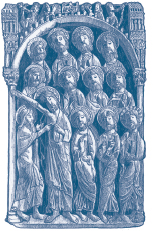
CHRIST AND THE APOSTLES

The Church of God needs saints today. This imposes a great responsibility on us. We must become holy, not because we want to feel holy, but because Christ must be able to live his life fully in us.
BLESSED TERESA OF CALCUTTA
1. St. Anne
First century B.C. Feast Day: July 26
Patroness of homemakers, widows, childless women, pregnant women, nursemaids, lace makers, broom makers, horsemen, grandparents, plague victims
Through the centuries the Church has become ever more aware that Mary, full of grace through God (Lk 1:28), was redeemed from the moment of her conception.
CATECHISM OF THE CATHOLIC CHURCH (CCC 491)
A ccording to ancient tradition, St. Anne and St. Joachim, her husband, were both from the tribe of Judah, of the royal house of David. They are venerated by the Church as the parents of the Blessed Virgin Mary. St. Anne has been honored as a saint from early Christian times. She and her husband waited patiently for God to grant them a child, and their wait was rewarded with a holy child the Blessed Mother Mary.
Next page
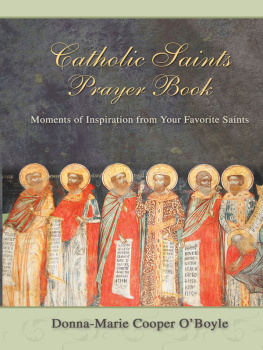
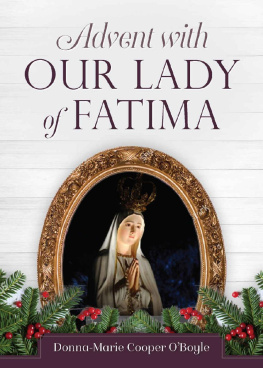
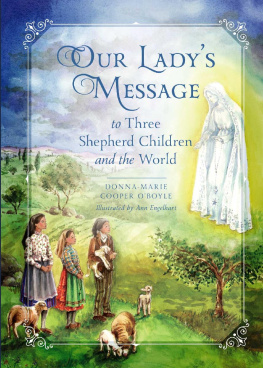
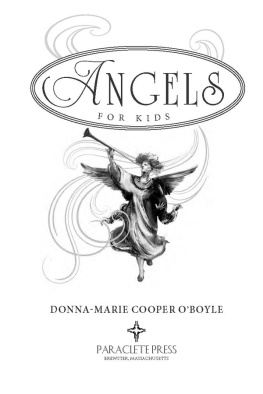

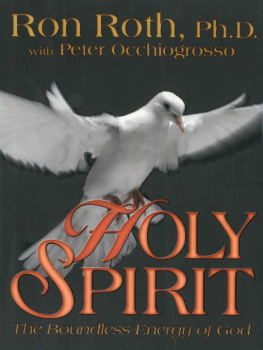
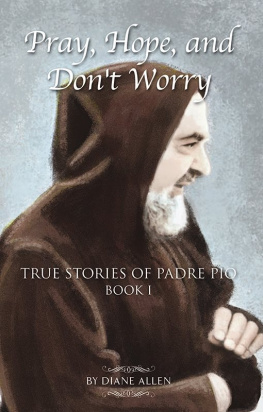

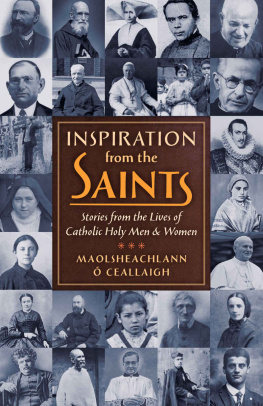
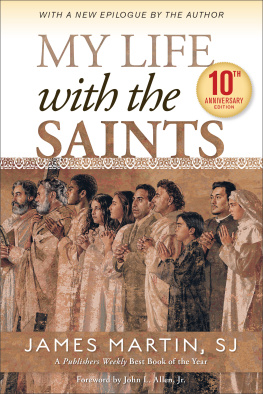
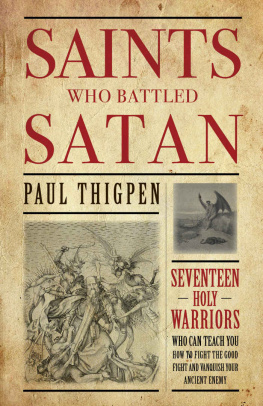

 John M. DArcy
John M. DArcy
